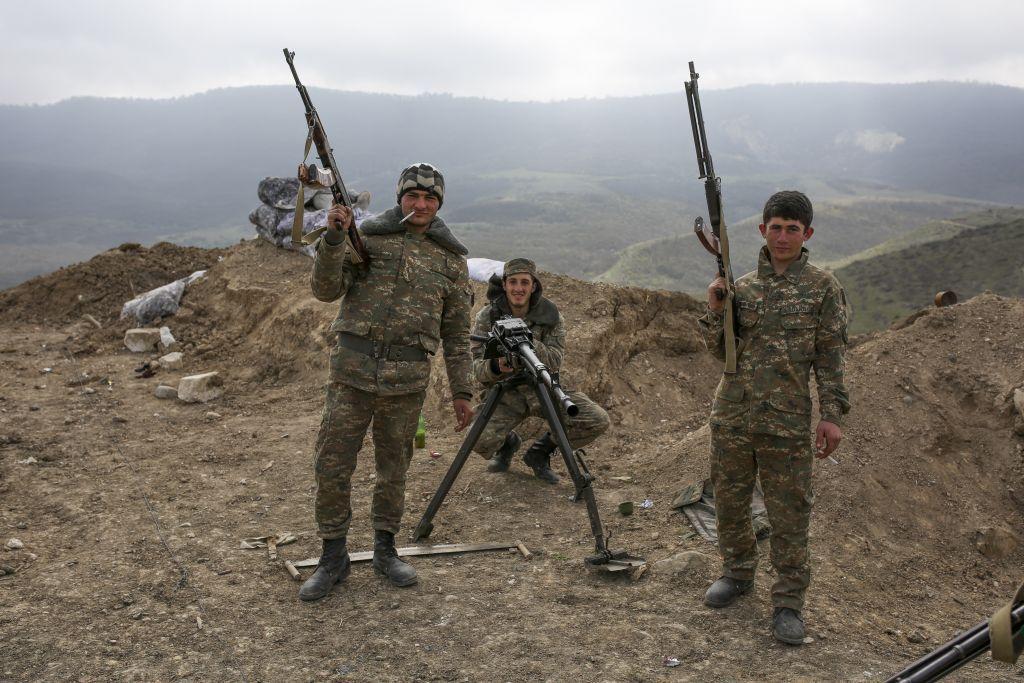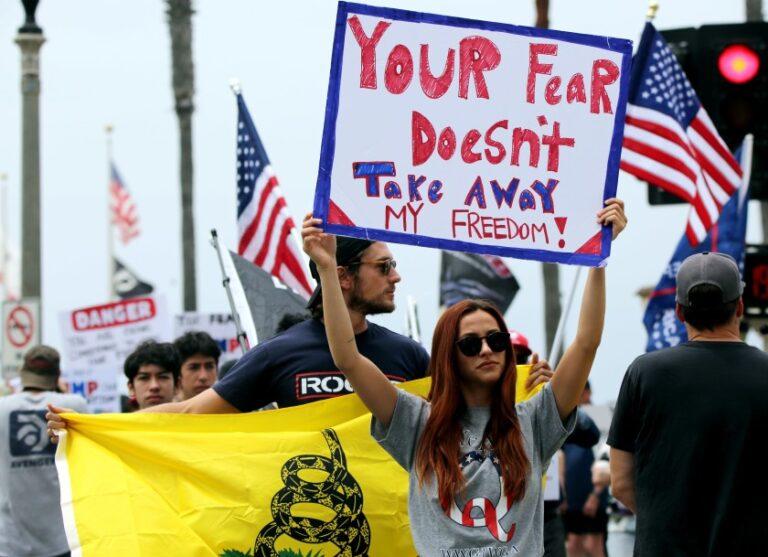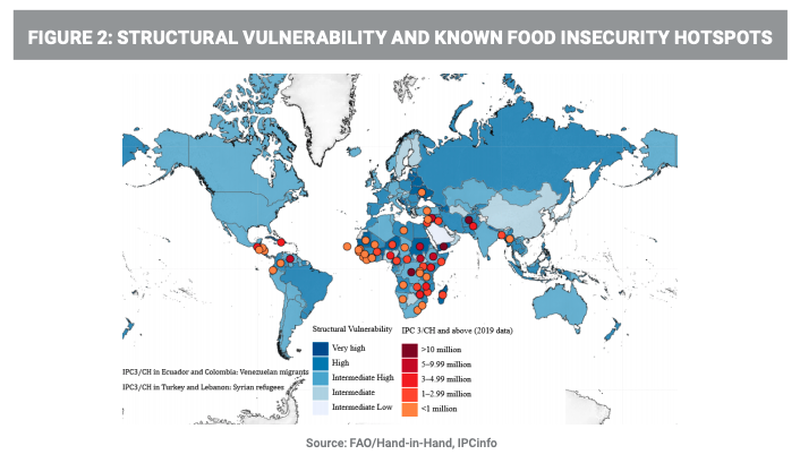Driven By Delusions: The West’s Nagorno-Karabakh Hypocrisy
Tyler Durden
Fri, 10/09/2020 – 02:00
Authored by Danny Sjursen via AntiWar.com,
Something stands out in recent U.S. and most Western reporting on the ongoing bloodletting in Nagorno-Karabakh (NK). Well, two things actually: ignorance and hypocrisy. Having shuttered most of their foreign bureaus long ago, there’s a distinct lack of expertise in the mainstream press on this – and many other – regional hot spots. That’s translated to a series of Nagorno-Karabakh “explainers” that read like Wikipedia-ripoffs hastily filtered through Washington’s built-in “blame Russia” conflict-colander.
Peddling in platitudes, they assume binaries that aren’t and Russian aggression that isn’t. All the while missing the core cause of this far worse than standard flare-up along the unmonitored Azeri-Armenian “line of contact.” In other words, the Erdogan elephant in the regional room. High-intensity air and armored combat has entered its tenth day, with little sign of abatement. Hundreds have been killed, including civilians, and major cities shelled, along with credible and corroborated reports that Turkey has indeed shipped in Ankara-paid Syrian mercenaries to support the Azeri army.
In other words, while the current conflict has largely local roots, and is prolonged by subpar political leaders on both sides of the frontlines, the real inciter this time around is Turkey. That is, the violence is heightened and widened by a NATO member state that’s led by an ethno-national-chauvinist president who’s stretched that alliance’s ostensible purpose and utility well past breaking point.
Nevertheless, the media cries Russia-foul, or at best implies guilt-parity between Moscow and Ankara. Yet it’s a mistake to equate the proxy-patron relationships fostered by Russia and Turkey. They are of a totally different character; frankly, in completely different leagues. The Russo-Armenian – and equally existent Russo-Azeri – connection is characterized by Moscow’s restraint, caution, and sure, perhaps a touch of the cynical. Turkey, conversely, now acts as though bonded by (mutual-Turkic) blood with Azerbaijan. It is an affair defined by Ankara’s aggression, risk-taking, and more than a dose of ethno-religious toxicity.
Russia starts its Armenian relationship calculus with the assumption that it should avoid military intervention – even though Yerevan and Moscow are Collective Security Treaty Organization (CSTO) allies – then comes up with reasons not to. For example, by not recognizing de facto Armenian-controlled Nagorno-Karabakh as de jure Armenia, Moscow can brush off collective defense treaty obligations so long as the Azeris don’t seriously attack across the internationally-recognized border. Believe you me, Baku understands the rules of this game of pretend. The Turkish position is completely different. Ankara is encouraging the Azeris’ game-change-seeking conquest campaign, and actively sending guns, bombs, drones, and armed human Syrians Baku’s way.
Would that it were only the corporate media pushing this purposeful – though sometimes just uninformed – obfuscation and misinformation. We the People’s pretend leaders, and their pretend opposition, in Washington are about as awful as the pretend free press. The Trump administration has been pretty quiet about the NK-blowup. That wouldn’t be such a bad thing, per-say – and would certainly the reflect real limits of America’s capacity and capability to do good in far-flung lands. That is, it might be fine if the president and his team were at least willing to name and shame Turkey, or support congressional calls and resolutions condemning Azeri-aggression and halting arms sales to Baku.
Trump’s Democratic presidential opponent, Joe Biden, was initially no better on the NK-crisis. Plus, per usual, Uncle Joe sprinkled a bit of Russia-reminder dust over the whole affair. That bit was really irksome. See, pretty much right off the bat – after obligatory nods to peace and negotiations – the Biden campaign statement quipped that the U.S. should be “calling for Russia to stop cynically providing arms to both sides.” Those Biden Boys just couldn’t help themselves. OK, so let’s try something new – for the modern media, at least – and dig into that statement just a bit.
“Cynical” Russian Arms Sales: Pot Meet Kettle
For starters, it’s hard to take seriously any arms sales-aspersions tossed by the globe’s number one gunrunner. According to a March report from the Stockholm International Peace Research Institute (SIPRI), during 2015-19, the U.S. accounted for 36 percent of world arms exports, up five points from the previous 2010-14 cycle. Russia is the world’s second leading “merchant of death,” naturally, but it only shipped-off 21 percent of global arms – and that’s down six points since the last cycle.
America also plied its lethal wares to 96 different states – surely none of those countries could’ve been on opposing sides of a conflict, right? Well, about that: you know, actually Washington’s customers were, are, and will ever be antagonists. A few examples should suffice:
India and Pakistan have lived in a state of cold, proxy, and occasional mass-blood-letting conventional war, for 73 odd years now. No matter, Uncle Sam arms both. In the same 2008-18 period, American defense companies shipped $3.1 billion over to Delhi and $2.5 billion to Islamabad. And speaking of those Pakistani customers, remember that they alternate between active and tacit backing of the Taliban insurgents trying to overthrow the U.S.-installed and allied Afghan government. That tottering regime received just a tad less in American arms largesse, $2.40 billion, though that’s 70.8 percent of Kabul’s total arms imports.
Tiny Qatar has recently been at odds, and even blockaded, by the main Gulf State powers of Saudi Arabia and the U.A.E. Yet all were top US arms-recipients in the same period: $2.63 billion for Qatar (68.3 percent its total imports); $7.60 billion for the U.A.E. (63.7 percent of its total); and $13.72 billion for America’s top global customer, Saudi Arabia (59.6 percent of total). Of course, the Saudis and Emiratis haven’t directly unleashed most of that hardware on Qatar just yet. Instead, they’ve preferred to bombard mostly helpless Yemenis for five full years of terror war now – to the tune of a couple hundred thousand dead; including a minimum of 85,000 starved-to-death children.
Besides, the USdoes provide economic aid, including ample security assistance, to both Armenia and Azerbaijan. According to a 2014 Congressional Research Service report, all three countries in the South Caucasus received security aid from Washington: During 1992-2010, Armenia trailed the pack at $223 million; its Azeri antagonists grabbed $327 million; meanwhile, Georgia – NATO/EU-aspirant and legit combat foe of bordering Russia – blew both out of the water at $896 million.
Plus, the same report – stop me if this sounds familiar – noted that “some [congress] members have maintained that the Armenian-Azerbaijani military balance is preserved by providing equal amounts (parity) in IMET [International Military Education & Training] and FMF [Foreign Military Financing] assistance to each country.”
Remember how, when pressed on the dual Armenian-Azeri arms deals in 2016, Russian Prime Minister Dmitry Medvedev argued that if Moscow stopped, “They would buy weapons in other countries, and the degree of their deadliness wouldn’t change…at the same time, this could to a certain degree destroy the balance.” Of course, it’s always worse when someone named Dmitry says it.
Since then, Congress appropriated far more “peace and security” funding – as the US government politely labels it – for both antagonists during Obama’s second term than in Trump’s first (and maybe last). Azerbaijan received $39 million in direct security assistance during 2013-16, compared to $8.5 million during 2016-19. Armenia got $61 million from Obama II, versus $19 million from Trump I – though much of Yerevan’s aid was related to combating WMD, and thereby not much use for war in Nagorno-Karabakh.
Anyway, it’s hard to see how any of that’s so different from – if not much worse than – Russia’s sales to Armenia and Azerbaijan. Apparently arms sales are only cynical if the contract’s signature is in Cyrillic.
Christian Sorensen – an Air Force veteran and researcher focused on the US war industry – noted in recent conversations with the author, that there is a rank hypocrisy inherent in American defense companies’ “tons of sales to Turkey.” After all, Ankara is hardly watching from the sidelines, but is rather the region’s prime Azeri-accelerant – encouraging President Aliyev’s bad behavior. That hasn’t stopped Washington from blessing off on $3.82 billion in arms sales to Ankara from 2008-18, or 45.8 percent of total Turkish weapons-imports. As for that “cynically arming both sides” bit, Turkey is also coming dangerously close to conflict with another American ally, Egypt – $2.8 billion in arms sales (2008-18); $1.3 billion annually in direct US security aid.
In addition to these historic macro stats, Sorensen emphasized the nefarious nature of recent arms deals with Ankara. “What stood out most,” he said, “were repeated sales of ordnance (and ordnance equipment and repair) to Turkey,” including Javelin JV anti-tank missiles (a joint Raytheon and Lockheed Martin project), four other Raytheon missile systems (AMRAAM, RAM, ESSM, AIM-9X), and Boeing-produced small diameter bombs. Incidentally, Defense Secretary Mark Esper made some good bank as a longtime lobbyist for Raytheon before joining his West Point ’86 classmate Secretary of State Mike Pompeo in the administration’s inner circle.
Mr. Sorensen knows a thing or two about such “revolving door” corrupt-cronyism, having detailed the crooked system in his recent book, Understanding the War Industry. Reviewing recent Turkish purchases, he noted that “the sheer variety of US corporations that sell to Turkey is another salient feature…[including] Honeywell, CAS, Raytheon, Lockheed Martin, SAIC, and Boeing.” As for contemporary relevance, and Nagorno-Karabakh crisis connections, Sorensen offered a biting and decidedly disturbing conclusion: “In the same month [September] that Biden officially commented on irresponsible [Russian] arms sales, the US government sold Turkey advanced technology for torpedoes and engineering services for shipborne fire control systems.” In other words: Biden pot, meet Putin kettle.
Then there’s the mercenary factor – which is increasingly an American business, as ex-U.S. soldiers have, since 9/11, eclipsed the old British, French, white Rhodesian, and apartheid South African staples. It seems the Turks aren’t the only ones offering hired guns Azeri autocrat Ilhan Aliyev-the-younger. Enter Erik Prince [of infamy], Donald Trump’s favorite fundamentalist, right-wing zealot of a mercenary, and the male-gendered half of the administration’s in-house sibling power-couple. (His sister is Education Secretary Betsy DeVos.). According to various reports, including one in the Washington Post, back in 2015 Prince planned to peddle crop-duster planes modified to carry guns and rockets to Baku “for use by the government of Azerbaijan in its decades-old conflict with ethnic Armenians, according to the former Prince associate.”
The kitted-out crop-dusters never made it there – probably due to an internal investigation started by Prince’s nervous partners, including ominous legal warnings that “The evidence strongly suggests that Mr. Prince was offering a foreign defense article (i.e., an attack aircraft) for sale” to Azerbaijan’s defense ministry, thus “brokering activities without being registered with [the State Department]. This presents potential violations of International Traffic in Arms Regulations (ITAR)” – the relevant US statute law. Nevertheless, according to his former associate, Prince did help set up a mercenary unit for Baku, to – per another 2018 report – “help it keep watch on the Nagorno-Karabakh region.”
In other words, the US and its officialdom-line-straddling gang of mercenaries could – and perhaps did – teach the Turks a trick or two about sending soldiers of fortune off to do their government’s bidding. Which brings us to NATO’s resident regional madcap: Turkey and its would-be Ottoman sultan, President Recep Tayyip Erdogan.
Our [Mad] Man in Ankara
Neither of the two official State Department statements, nor that of the opposing Biden campaign, fingers – or even mentions – Turkey by name. The initial release from State’s spokesperson referred only to “external parties,” whose intervention would be “unhelpful” and “exacerbate regional tensions.” Talk about a cop-out. On Monday, the second State Department overture – a joint statement “by the Governments of the United States of America, the Russian Federation, and the Republic of France” – didn’t even bother with euphemisms. Not a single external actor was mentioned. The Biden campaign masked its Turkey reference with talk of “third parties” who “must stay out of this conflict.” Of course, it offered that rather veiled rebuke only after taking that shot at Russia in the statement’s second sentence.
In a rational country, one whose leaders even occasionally peered over their Russia-goggles, that might seem strange. After all, by any measure Ankara has always – but especially now – held the more aggressive, interventionist, and one-sided position on Nagorno-Karabakh. Only intellectual consistency, or honesty, isn’t really Washington’s thing.
Here’s an illustrative thought experiment, for example: How do you think the Biden campaign’s statement would have read if Putin, not Erdogan, were shipping Moscow-paid mercenaries into the current fray? Something tells me it’d merit a mention or two. To be fair, a later Biden tweet did call on Turkey by name – “to stay out of this conflict” – but didn’t mention the mercenary-deployment or retract the earlier statement’s Russia-baiting. So there we are again, the duopoly offering Americans platitude over principled-policy; partisan-hedging instead of honesty.
The straw that breaks the back of Russian patience will likely relate to Moscow’s own oft-forgotten “dirty war” on Islamist terror in the nearby North Caucasus fiefdom of its federation. Though admittedly a sometimes self-inflicted wound of Soviet and Russian repression, remember that exorbitantly bloody Islamist-inspired attacks reached Moscow not so long. Overall, while hard data is difficult to come by, around 1200 members of the Russian security forces, and 600 civilians were killed in the North Caucasus insurgency from 2009-17 alone.
During the Second Chechen War (1999-2006) that preceded this insurgency, the Russian Defense Ministry admitted to 3,603 servicemen deaths – though a committee of soldiers’ mothers insists Moscow severely downplayed the casualty statistics. In other words, even by modest official counts, more Russian troops died over 18 years in North Caucasus conflicts than American troopers died in Iraq over a similar timespan. The Kremlin, and its common citizenry, are unlikely to take lightly even the potential of any additional Islamist intrusion from the south.
Putin’s early popularity-rise was partly related to average Russians’ sense that he – sound familiar? – would be, and was, tough on terror. Only a strongman in the Kremlin – not some booze-soaked Western-stooge like Boris Yeltsin – could ensure their safety from the Islamic-crescented Caucasus hordes. The American-induced “shock therapy” of crony capitalism masquerading as democracy hadn’t worked out so well for an increasingly impoverished and crime-ridden post-Soviet citizenry, thus if the cost of Putin’s “peace” was a bit of liberty…so be it.
In past decades, Ankara and Moscow mostly cooperated in Russia’s anti-Islamist – though equally anti-secessionist – campaign in the North Caucasus, but the sometime antagonists’ paths have since diverged. Erdogan and Putin aren’t always implacable foes – even the tinpot-sultan is too smart for that – and have made trade deals, talked Syrian peace, sealed some air-defense arms deals, and often defused conflict-area tensions at the eleventh hour. Still, there’s something exceedingly precarious about relatively overt Russian and Turkish interventionism on-the-ground, and on different sides, in the contemporary ungoverned spaces of Libyan and Syrian proxy/civil wars.
The Russians regard themselves – not altogether incorrectly – as the more rational and realistic actors in both conflicts, backing admittedly incorrigible strongmen that (generally) oppose Islamist influence. Turkey, on the other hand, has proven more amenable to both Muslim Brotherhood types (like Libya’s GNA, Government of National Accord) and outright Sunni jihadis (Al Qaeda-esque fighters in the last rebel strongholds – like Idlib – of Northwest Syria). It is from the latter element – and their massive refugee detritus within Turkey’s borders – that Ankara pulls its private hired army, and ships them off to Libya, and now apparently Azerbaijan. If that infusion continues and/or escalates, or if Turkish troops or aircraft truly intervene in the NK-combat, expect the so far remarkably restrained Putin to pronounce “this far and no further.”
Some combination of those Turkish provocations might prove Russia’s “red line,” and unlike the more wobbly Barack Obama – expect Putin to stick to his guns once he’s delineated said boundaries. On Tuesday, the head of Russia’s SVR Foreign Intelligence Service hinted at this, warning that Turkey’s infiltration of Syrian mercenaries into Nagorno-Karabakh risks creating a launch pad for – what Moscow views as – jihadi elements entering Russian territory. Tehran agrees, apparently, as hours later Iranian Foreign Minister Mohammad Javad Zarif joined a phone call with his Russian counterpart Sergei Lavrov, during which both expressed concern over the involvement of Turkish-paid Syrian – and potentially Libyan! – fighters in the NK-conflict.
For all that, Brussels pretends that Turkey is still salvageable – whether in Karabakh, Libya, Syria, Cyprus, or wherever else Erdogan wildly diverges from the alliance’s purported positions or principles. In a joint news conference with Turkey’s Foreign Minister on Monday, NATO’s Secretary-General said: “I expect Turkey to use its considerable influence to calm tensions.” He failed to mention how or why that’s anything more than fantasy.
Perhaps the secretary-general forgot that NATO couldn’t even avoid two top members – with the second (Turkey) and third (France) largest alliance armies – from nearly duking it out on the high seas off the coast of another proxy war, Libya, in June. And wouldn’t you know, the very next day after his joint NATO press conference, Ankara’s foreign minister rejected the entire concept of internationally-brokered peace or ceasefires short of an outright Azeri victory!
Meanwhile, on Tuesday, Armenian Prime Minister Nikol Pashinyan at least opened the door for “mutual concessions’ with Azerbaijan on Nagorno-Karabakh. Plus, Armenia’s president – though no peach himself – also offered a more reality-attuned analysis: that Turkish interference is “taking the conflict an order up in magnitude” and “creating something that will eventually become another Syria of the Caucasus.”
Speaking of Syria – yea, I’ll say it – President Bashar al-Assad’s read isn’t exactly wrong either – and certainly less delusional than the naive NATO-line. In an interview published Tuesday, Syria’s strongman called a spade a spade, specifically that “[Erdogan]…was the main instigator and the initiator of the recent conflict in Nagorno-Karabakh between Azerbaijan and Armenia.”
Even the most flawed messenger can deliver a dead-on message.
Because here’s the rub: if Russia ever does roll into Nagorno-Karabakh, Armenia, and/or Azerbaijan – in other words, if this thing really gets out of hand – it will be on account of the obscene offensive of a key Turkish member of NATO’s purported “defensive” alliance. Ankara will have done so, have caused it, through the sale – and maybe direct use – of mainly NATO-standard-issue, and largely U.S.-manufactured, weapons systems.
Of course, that’s as uncomfortable as it is unsatisfying. So instead, count on Washington to blame Russia – which is always worth its weight in comfort, satisfaction, and political point-scoring…if not sound strategy. But hey, that’s future America’s problem: appropriate as ever for a nation as strategically-leveraged as it is financially debt-ridden.
You know, back in the late Ottoman Imperial Era – when that bygone empire was doing the Armenian genocide Ankara still denies – it was common to refer to Turkey as “the sick man of Europe.” Forgive the COVID-age pun, but if Washington and its media lackeys keep up their delusion and overreach, it may not be long before folks start dubbing Uncle Sam the “sick man of planet Earth.”
via ZeroHedge News https://ift.tt/33GMlpx Tyler Durden





 On Tuesday, the Supreme Court heard
On Tuesday, the Supreme Court heard